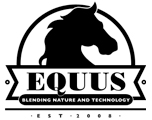Feeding Before and During Competition
Below are a few tips on the best way to feed horses during multi-day competitions to reduce the risk of ulcers, maintain appetite and ensure an appropriate calorie intake for the duration of the competition.
- Try to keep the horse’s feed (and water) as close to what he has at home whilst away. Some elements are easy to keep the same, for instance, any concentrate feed, but some things may change such as giving additional electrolytes, or time at grazing. In this case, try to keep hay used whilst away as close as possible to what is used at home.
- Try to change the horse’s diet to what he will be eating during the time of the competition long in advance while still at home. Introduce new dietary additions ahead of time to ensure the horse is not put off by the change
- If the horse becomes fussy with his food while away, try dividing the daily amount into more small meals to encourage eating. Feeding up to 4-5 times a day is no problem and can be introduced before leaving home to establish a good routine.
- Travel with as much hay as possible so that the horse always has something to chew on. This can help to reduce the risk of ulcers. Provide access to damped down hay while on the road (dampening reduces the risk of dust and other airborne particles ending up in the lungs) and stop at regular intervals (at least every 4 hours) to allow some grazing time and access to hay and/or the normal feed should the journey be over a long distance (eaten at ground level).
- If a horse gets very stressed while travelling and away from home and is prone to ulcers, speak to your veterinarian about using either an Omeprazole based medication to reduce or stop gastric acid production during travel and competition to reduce the risk of ulcers forming. This should also help with appetite and general attitude while away.
- Go easy on salt and electrolytes in horses’ feeds! Sometimes we tend to get carried away with wanting to add a lot more salt and electrolytes while on the road BUT too much will make the feed unpalatable. It can also aggravate any ulcers that may be present. If electrolytes are added to water, ensure that there is also access to plain water, so the horse is not put off from drinking. Be mindful of the fact that horses sweating very heavily will need to have extra salt and electrolytes (e.g. polo and polocrosse horses, endurance horses, eventers etc) so you will need to discuss with your experienced nutritionist or vet. how to best administer them.
- Never restrict food. This can lead to digestive issues such as colic and Gastric ulcers. No horse should go longer than 4 hours without something to eat, even if this is hay while waiting for your class. Although timing of meals may change, providing the same routine is key as it makes no difference to the horse whether it is 7pm or 9pm but he will know the sequence of events.
- Don’t forget to feed enough forage. Often those travelling for long periods at a time frequently underestimate how much hay they should feed and, as a consequence, the horses lose condition while away from home. For horses who do struggle to hold weight while away, feed as much hay as they want and always try to have their preferred hay. A huge amount of nutrition is derived from hay which keeps the horses entire gut and mind in balance leading to the creation of better appetites and performance at the desired level. Never restrict hay intake in an attempt to force horses to eat their hard feeds as this will most likely have the opposite effect.
Adapted from FeedXL.com
